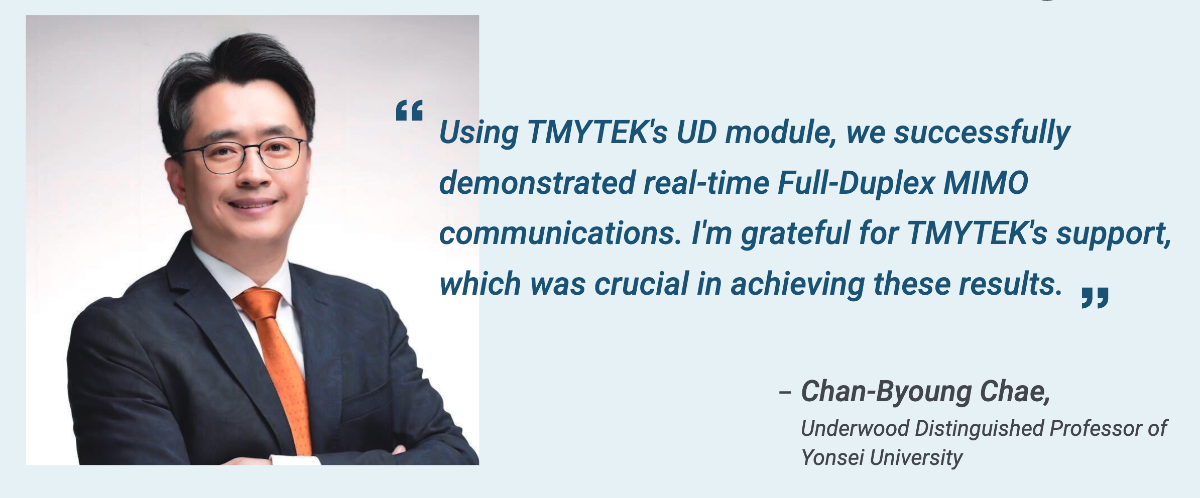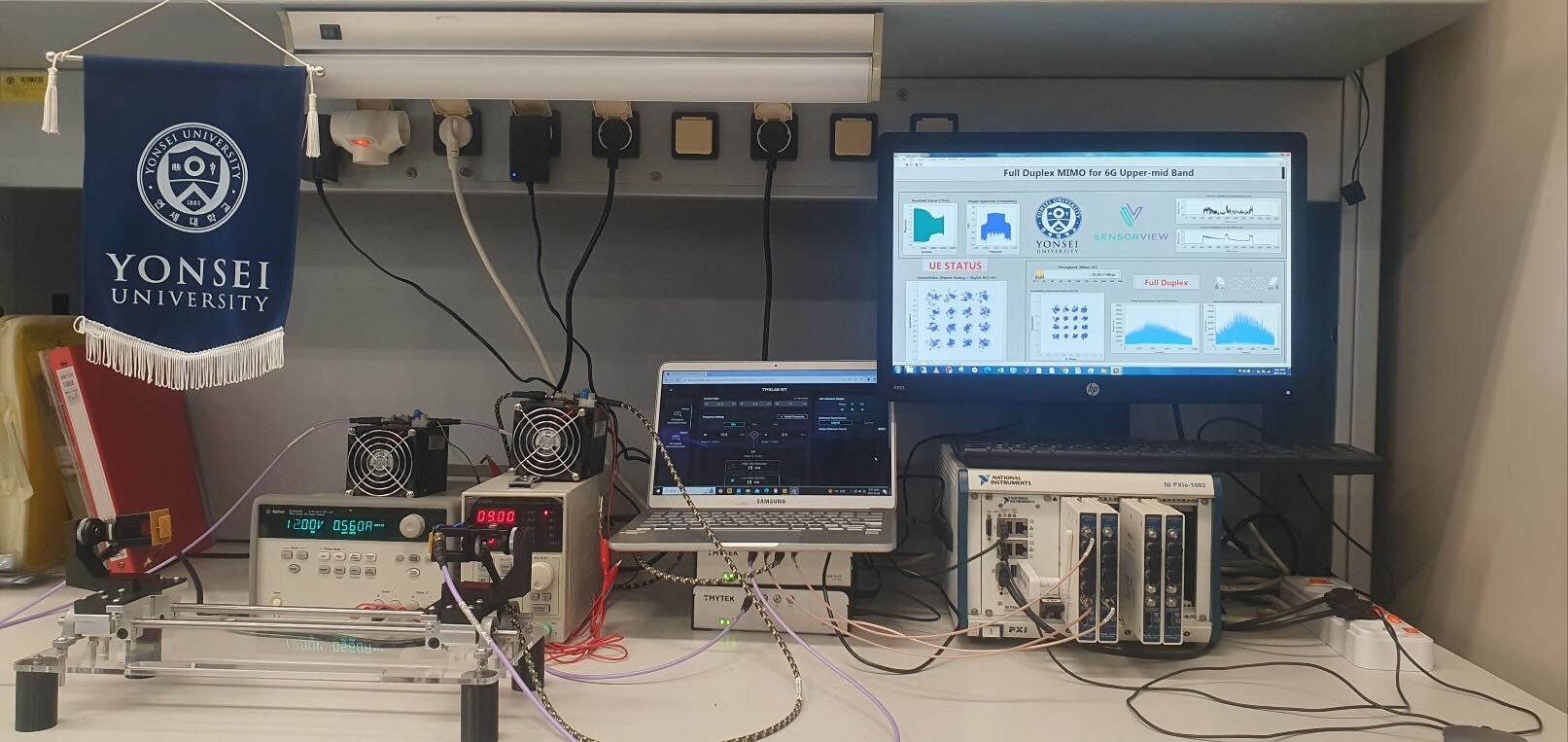Yonsei University / SensorView: Empowering Advanced 6G Research in Full-Duplex MIMO Communications for Upper Mid-Band.

“Using TMYTEK's UD module, we successfully demonstrated real-time Full-Duplex MIMO communications. I'm grateful for TMYTEK's support, which was crucial in achieving these results.”
—Chan-Byoung Chae, Underwood Distinguished Professor of Yonsei University
Background
Professor Chae from Yonsei University is leading pioneering research in the field of NextGen (6G/B6G) wireless communications and molecular networking. The Korean government's newly allocated frequency bands for 6G includes the upper-mid band. However, full-duplex MIMO communications within this new frequency band have yet to be developed, and hence significant development is still needed. Professor Chae’s project focused on developing Full-Duplex MIMO (Multiple Input, Multiple Output) technologies that aim to double the spectral efficiency of wireless networks. This technology enables simultaneous sending and receiving of data signals in the same frequency band, a major breakthrough for increasing network capacity without additional spectrum.
Challenge
The challenge in Professor Chae’s research was the need for a robust hardware solution capable of handling high-frequency, high-bandwidth signals essential for 6G communications. Specifically, his research required a device that could effectively convert signals to the 12.5 GHz frequency range while supporting a 1 GHz system bandwidth for real-time full-duplex communications.
Solution
TMYTEK provided Professor Chae with their advanced UD module, Model 0620, specifically designed to meet the demands of next-generation wireless technologies. This module enabled the conversion of transmission signals to the desired frequency and supported the necessary bandwidth for the research. The versatility and performance of the TMYTEK UD module were crucial for conducting real-time experiments and demonstrating the viability of Full-Duplex MIMO communications.
 Image: Inside Yonsei University's lab, showcasing the advanced setup for 6G Full Duplex MIMO research, with TMYTEK's UD Module 0620.
Image: Inside Yonsei University's lab, showcasing the advanced setup for 6G Full Duplex MIMO research, with TMYTEK's UD Module 0620.
Outcome
With the integration of TMYTEK’s UD module, Professor Chae successfully demonstrated a real-time full-duplex communication system, marking a significant leap in 6G technology. This technology effectively doubled the spectral efficiency of wireless communications using the same spectrum. The successful deployment not only corroborated the theoretical underpinnings of full-duplex technology but also pushed it towards viable commercial applications.
The successful collaboration with TMYTEK allowed Professor Chae’s team at Yonsei University to overcome critical technical barriers in 6G research. The project’s success has positioned the university at the forefront of 6G technology development, contributing valuable insights and potential standards for future wireless communications. TMYTEK's technology has proven to be a crucial enabler, overcoming significant technical challenges and demonstrating its potential to revolutionize global communication networks with faster, more efficient, and more robust services.
Looking ahead, Professor Chae plans to refine this technology further, influencing future wireless standards and promoting its integration into global commercial networks. TMYTEK continues to be an indispensable partner in this endeavor, providing state-of-the-art technology and expertise that fuel ongoing innovations in the wireless sector.